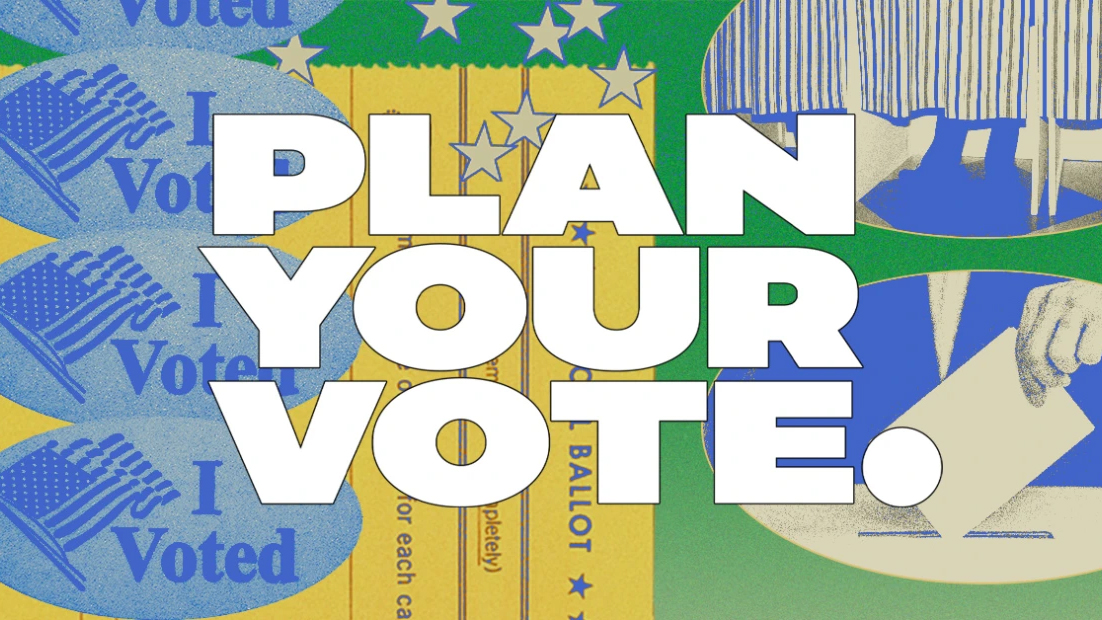
We surveyed NBC viewers across the country about their thoughts and feelings as they head to the polls. The results reveal voters grappling with key policy issues, navigating a range of emotions and preparing to make their voices heard.
Through a series of charts, we explore who's voting, why and what issues matter most. From generational divides to the influence of social media, these graphics shed light on what's shaping your collective vote.
Toward the end of this article, you can see how your own voting attitudes and behaviors fit into the bigger picture.
What's driving you to the polls
We've got the news you need to know to start your day. Sign up for the First & 4Most morning newsletter — delivered to your inbox daily. Sign up here.
An overwhelming 98% of respondents plan to vote — far above the national turnout of 67% in 2020 and 60% in 2016. When asked why they're voting, survey participants cited diverse reasons, from civic duty to specific policy concerns.
The issues shaping your vote
When asked to choose the single most important issue shaping their vote, 36% of respondents cited the economy. Abortion and reproductive rights ranked second at 24%, and immigration followed at 11%.
How you’re feeling about Election Day
Elections aren't just about policies and candidates -- they're also about emotions. We asked you to describe your feelings about the upcoming election in one word.
Anxiety dominates voter sentiment at 32%, followed by fear and frustration.
However, a significant portion remain optimistic, with 25% feeling hopeful and 5% excited. Only a small fraction report feeling indifferent.
Information overload
How we consume news and information can significantly impact our political views.
How much time do voters spend following the news? Most fall into three groups: light viewers (1-3 hours weekly), moderate viewers (3-5 hours), and regular viewers (5-10 hours). Combined, these groups make up 67% of respondents.
At the extremes, 20% consume more than 10 hours of news weekly, while 10% spend less than an hour.
On social media, most users see limited political content: 41% report minimal exposure, 37% see moderate amounts, and just 5% say politics dominates their feeds.
Where do you fit?
Enough about everyone else. Let’s talk about you.
How do your own voting attitudes and behaviors fit into the bigger picture? Answer a brief series of questions to uncover your unique voter profile. We'll create a personalized mosaic that captures your political priorities, motivations and outlook.
Each mosaic tile is composed of several key elements:
The overall pattern shows your driving force -- whether it's health care, education or economic policy.
The outer shape reflects your voting plans.
The inner shape captures why you vote (or choose not to) -- from civic duty to desire for change.
Your mosaic's colors capture your feeling about the voting process, from hopeful to scared.
Together, these elements create your unique tile. You'll also discover which voter persona you most closely align with -- based on common patterns of motivation and behavior we've identified in our survey responses.
Answers to the quiz are anonymous and will not be recorded or stored in any fashion.
Ready to start?
Methodology note: This survey was conducted online from October 11, 2024 to October 26, 2024, with 355 respondents. Readers should note that online surveys may not fully reflect the views of the entire electorate.
Preparing for Election Day
As November 5 nears, explore more of our comprehensive coverage of the election.



